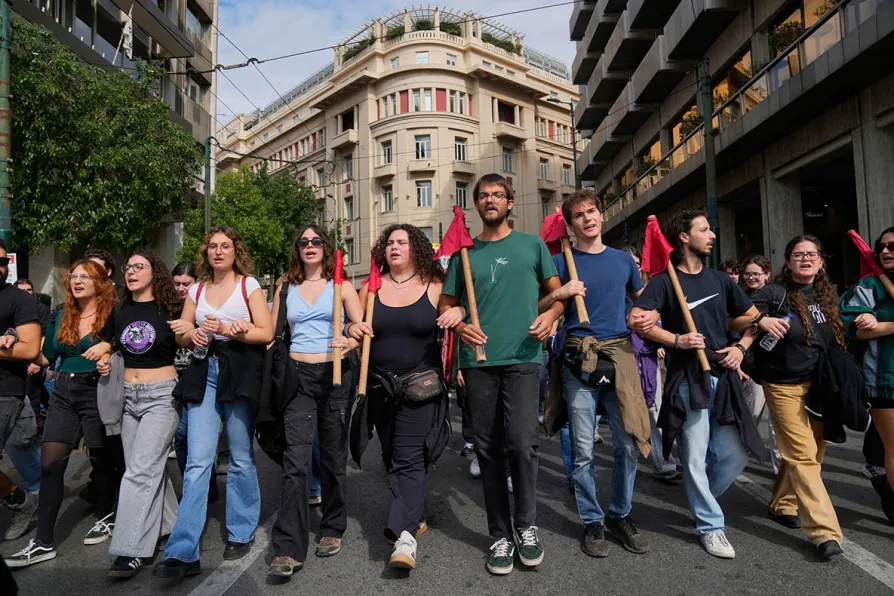
 Protesters take part in a nationwide 24-hour strike in Athens, Greece, October 14, 2025, as unions demand higher wages and the withdrawal of a bill changing work hours
Protesters take part in a nationwide 24-hour strike in Athens, Greece, October 14, 2025, as unions demand higher wages and the withdrawal of a bill changing work hours
THOUSANDS of demonstrators marched through the streets of Athens today as Greece’s trade unions called the country’s second general strike this month to protest a new labour law.
The 24-hour strike disrupted ferry schedules to and from the Greek islands while public transport in the capital was running on a reduced schedule, snarling traffic. No trains were running for the duration of the strike.
Huge trade union-led rallies took place in towns and cities across the country.
Unions representing private-sector workers and civil servants called the strike to protest against a new labour law that will allow greater variation in terms and conditions, including longer overtime shifts.
The unions argue the new legislation, which is due to be voted on in parliament on Wednesday, leaves workers vulnerable to abuses by employers.
Flexible working hours “in practice mean the abolition of the eight-hour [working day], the dissolution of any meaning of family and social life and the legalisation of over-exploitation,” the civil servants’ umbrella union ADEDY said in a statement.
Unions are calling for the new legislation to be withdrawn, and for working hours to be reduced from the current 40-hour working week to a 35-hour week.
They are also demanding pay increases and the reinstatement of collective bargaining agreements.
The country’s right-wing government is insisting that the aim of the new measure is to give employers more “flexibility” and to provide a boost to competitiveness.
But unions have slammed the move as a “return to the Middle Ages,” warning that many workers will not be given the flexibility to refuse the new shift patterns and this illustrates the built in imbalance in the power relationship in the job market.










